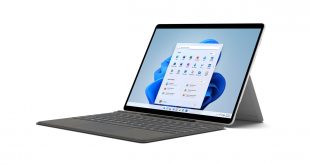There are some products that are easy to push to students and others that are a lot harder. Intel seems to be finding out the hard way that supplying the wrong kind of tablets leads to reduced sales. KitGuru hides in the bush with night vision goggles.
A story reached KitGuru about a year ago, which focused on the inability of one African government to implement (what it thought was) a radical new approach to IT and education. Money was made available for several thousand laptops to be given to poor students in order to boost their progress. While we applaud the effort, the outcome was – perhaps – not so difficult to predict. Supply a starving man with a bread roll, butter and a silver knife – then he's more likely to sell the knife to buy more bread as he is to use it for spreading.
In the UK, a variation of that story means that some education authorities are coy about having out thousands of cool tablets. The resale value – along with the lack of true ruggedisation – means that the good intentions behind any such investment are likely to fall off the tracks soon after implementation.
That brings us to Intel's efforts with its StudyBook. Manufactured for them by Elite Group (ECS), this 7″ tablet has limited ruggedisation and some resistance to liquid spills. Lauded when launched as being ‘close to the Holy Grail' by Ziff Davis in the States, sales have fallen short of what Intel had hoped for.
Original plans targeted sales of up to 4 million units, but – so far – Intel seems to have only just hit 1.6 million. When you compare that to the kind of sales Apple enjoys in the consumer space, you can see just how low it is. What's more disappointing for Intel is that the education market is truly significant. Here in the UK, companies like Alan Sugar's old education specialist Viglen, still bang in massive, multi-million pound revenues during the peak summer season.
Speaking with people inside Intel, they believe that the reason why sales figures have been missed buy around 50% for both StudyBook and UltraBook products is price. The student tablet seems to retail at around $579 (£399), while UltraBooks can easily cost more than $1,500 (£1,000).
The challenge must be, “If you want to charge more than Apple prices – to students or consumers – do you have the brand equity necessary?”

KitGuru says: We applaud Intel for working hard to create these new markets. Sure, the press will bang on about ‘Sales targets being missed by 50%' etc, but the reality is that Intel had ‘close to zero' tablet sales, but now – with StudyBook – it has sold more than 1.5 million additional units. The same goes for UltraBooks. Missing your sales target by millions of units, misses out the vital fact that your boosted sales into a new market that you didn't have before. Can this kind of price structure succeed, long term, in a Google Android world? We suspect no.
Comment below or in the KitGuru forums.
 KitGuru KitGuru.net – Tech News | Hardware News | Hardware Reviews | IOS | Mobile | Gaming | Graphics Cards
KitGuru KitGuru.net – Tech News | Hardware News | Hardware Reviews | IOS | Mobile | Gaming | Graphics Cards


